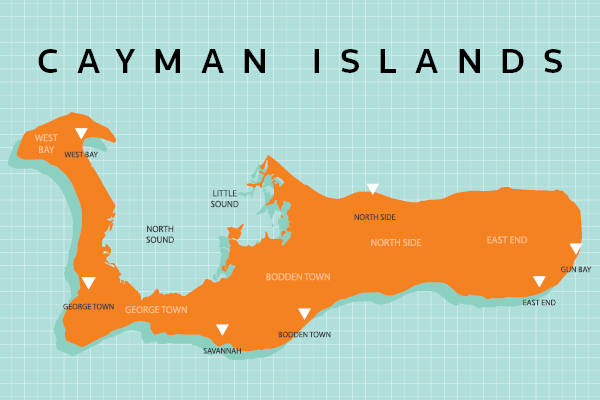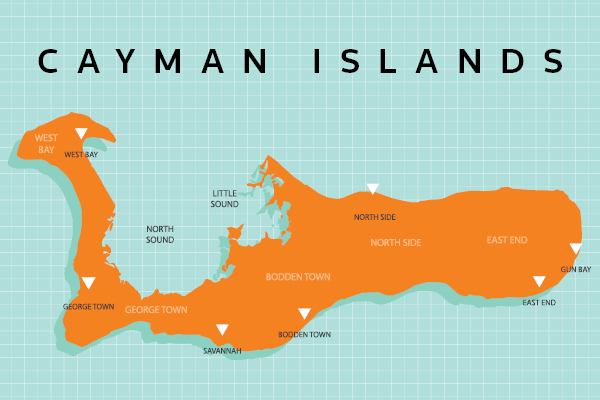
Tax jurisdictions like the Cayman Islands, which have long been popular with corporations, are now facing some scrutiny, particularly as new regulations in places like the European Union and the U.S. require companies to make a business case for offshore operations.
This increased scrutiny has led the Cayman Islands to pass a series of laws and regulations to tighten oversight of companies and operations.
For the operators of the more than 100,000 companies registered in the Cayman Islands, a slew of new laws and regulations could have significant impact.
New legislation covers a range of areas, from data protection (an increasingly complex area) to anti-money laundering and beneficial ownership.
In 2016, Cayman Islands introduced the Limited Liability Companies Law that allows for the creation of limited liability companies. In October 2017, Foundation Companies Law took effect that allows for the creation of companies that can act as foundations.
Although the largest companies in the world – which have been facing greater pressure to eliminate the use of no-tax jurisdictions – seem to have been moving away from basing operations in places like the Cayman Islands, that is not true of all types of companies.
Funds, like private equity and venture capital funds, in particular, continue to move towards the Cayman Islands. According to statistics published by the Cayman Islands Monetary Authority (CIMA), at the end of the second quarter of this year, the number of registered funds increased by 2 percent from the end of the first quarter and 0.8 percent from the same period a year earlier. Altogether, there were 10,708 funds registered in the Cayman Islands.
Several new laws and regulations will have significant impact on the operations of companies and funds.
DATA PROTECTION LAW
A much-discussed new piece of legislation in the Cayman Islands is the Data Protection Law (DPL) that will come into force in January 2019, according to Cayman law firm Broadhurst.
The law is being introduced at a time when organisations operating in offshore centres are expected to implement data protection compliance policies. The Cayman Island now stands together with more than 100 jurisdictions that have put in place some kind of data privacy legislation.
The DPL follows the general framework set out in the European Union’s General Data Protection Regulation (GDPR), which took effect in May 2018 and required significant adjustments by companies.
The DPL differentiates between personal data and sensitive data and gives individuals the right to access their information. The law also requires personal data to be processed fairly and lawfully. The data also needs to be used only for a legitimate purpose that the individual data subject knows of.
When personal data is processed for new purposes, a new consent from the individual data subject must be obtained to undertake the processing. The DPL also requires that individuals be notified if their data is moved outside the Cayman Islands.
The GDPR has been generally recognized as the most rigorous data privacy regime and the fact that the DPL is modelled on it is significant.
The Cayman Island’s DPL shares key definitions and basic rights of data subjects with the GDPR as well as have similar obligations for data controllers and processors.
Breaching the data protection regulation could lead to fines of up to $121,000 per breach and even imprisonment for up to five years. Offenders could also face monetary penalties of up to $302,000 under the law.
ANTI-MONEY LAUNDERING REGULATIONS
Another important development are the new anti-money laundering regulations.
The Cayman Islands Monetary Authority (CIMA) issued in April revisions to its Anti-Money Laundering Regulations. The regulations require regulated and unregulated funds to appoint an anti-money laundering compliance officer, a money laundering reporting officer and a deputy money laundering reporting office by September 2018.
The revisions extend the AML regulations to unregulated funds, like hedge funds or private equity funds, that may not need to register with CIMA.
Like funds regulated by the Mutual Funds Law, unregulated funds now need to outsource these functions to a service provider, which could be a regulated administrator or investment manager for anti-money laundering purposes in a recognized jurisdiction.
Anyone who fails to comply with the anti-money laundering regulations faces fines of as much as $610,000 or imprisonment for up to two years.
The reporting officer and deputy reporting officer have substantial responsibility to assess and report any suspicious activity and to decide whether to inform authorities of these activities. In turn, the compliance officer should oversee compliance through an independent reporting line.
To prevent money laundering, complete know-your-customer (KYC) documentation is now required. Investors whose accounts are held in their name at a bank regulated in an anti-money laundering jurisdiction must provide the documentation to funds and their administrators.
Under the new rules, before the investment fund receives subscription payments from an investor’s account held at a regulated bank, the fund is required to assess the level of risk associated with the investor. It also needs to assess if full KYC documentation from the customer and its beneficial owner is needed. This new measure means that investors in Cayman Islands funds are now more likely to be required to provide full KYC.
As part of this new regulatory regime, funds should report any suspicion of overseas tax evasion since a new criminal tax offence has been introduced into Cayman Islands Law. Overseas tax evasion is now considered criminal behaviour.
REGISTER OF BENEFICIAL OWNERSHIP FOR CAYMAN COMPANIES
Another notable change are the amendments that the Cayman Islands has made to the Companies Law and the Limited Liability Companies Law.
Since June 2018, a number of different Cayman companies and Cayman limited liability companies are required to create and maintain a Register of Beneficial Ownership.
These companies include companies incorporated in the Cayman Islands, except companies listed on the Cayman Islands Stock Exchange or an approved stock exchange, companies registered or holding a license under a “regulatory law”, and companies managed, arranged, administered, operated or promoted by an "approved person” as a special purpose vehicle, private equity fund, collective investment scheme or investment fund, and so forth.
Companies that fail to meet this requirement will face fines up to $61,000 and imprisonment for up to two years.
OTHER NEW LAWS TO NOTE
There are other significant new laws and regulations that could impact companies registered in the Cayman Islands. The latest Cayman Gazette includes 18 new bills that concern a slew of industries.
For the finance industry, the government introduced The Non-Profit Organisations (Amendment) Bill, The Companies (Amendment) Bill, The Banks and Trust Companies (Amendment) Bill, The Limited Liability Partnership (Amendment) Bill and The Proceeds of Crime (Amendment) Bill.
On the other hand, the land and property sector has to take note of a Stamp Duty (Amendment) Bill that will be of general interest. This amendment proposes changes to exemptions and to increase the thresholds for payment of Stamp Duty by first-time buyers.
To contact the editorial team, please email ALBEditor@thomsonreuters.com.



